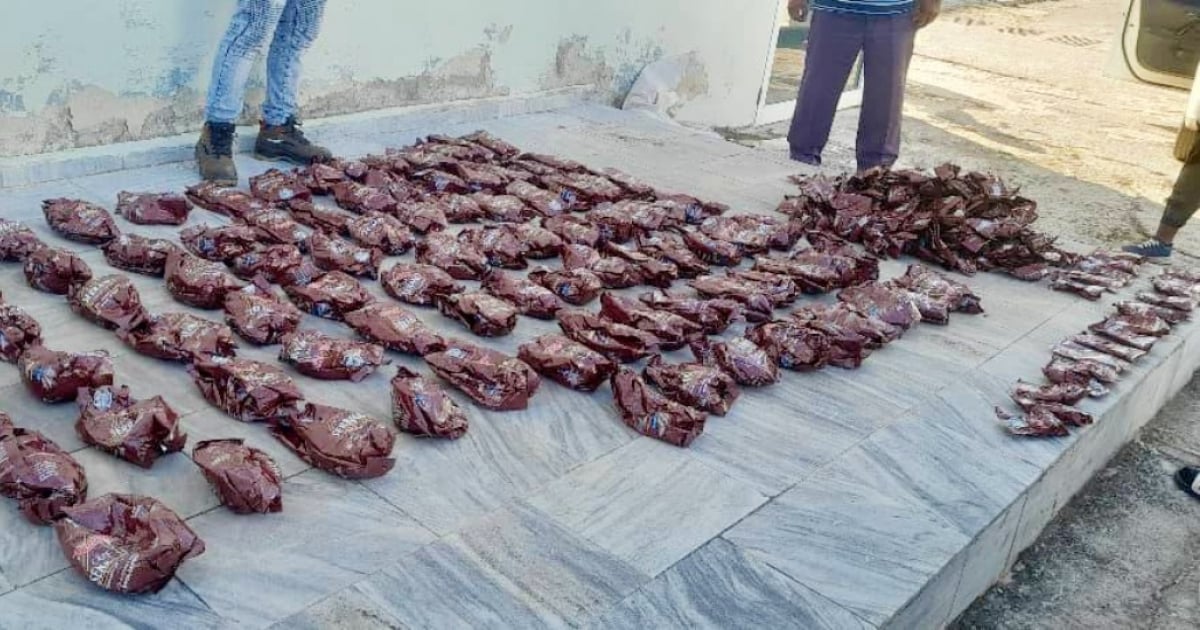Cuban authorities have dismantled a secret coffee factory in Marianao, a district of Havana, where coffee was being packed in Serrano brand containers. The discovery occurred at Finca Santa Catalina, located in Pogolotti neighborhood, according to the pro-government Facebook page "Javier Gutiérrez." The operation was reportedly led by the head of the Sector and the Technical Investigation Department (DTI) of the Ministry of the Interior (MININT).
The factory was allegedly running continuously, selling adulterated coffee in official brand packages. However, the report did not specify the amount of coffee seized or the number of arrests made during the operation. Typically, the Cuban regime provides only limited details of police operations via official social media profiles, often omitting information of public interest.
The announcement sparked discussion on social media, with opinions split between those who support the crackdown and those who see it as a further indication of Cuba's supply crisis. Some internet users expressed outrage at the possibility that state officials or employees might be involved in supplying the containers used by the clandestine factory.
"This needs to be investigated thoroughly. Pay attention; those coffee containers must have come from legitimate factories. These criminals are buying the containers from packing plant officials to adulterate the product and sell it," one user alleged.
Others pointed to a deeper issue: the lack of oversight in the agricultural sector. "This is due to the state's minimal control over the production by farmers and cooperatives. Often, products go to waste because there's no transportation or simply because they don't bother to collect them," another user remarked, citing the annual waste of mangoes while children lack fruit purees.
Shortages and Desperation: "Neither Underground Nor Legal Now"Several Cubans voiced concern about the lack of coffee on the island and how this illegal network somewhat filled a gap in state distribution. Comments on social media included: "Now the neighborhood is without coffee"; "Great! Now they'll distribute it in the stores and we can have decent coffee… Oh no, wait… that's only in MLC or USD"; "They should focus on animal thieves, not on those just providing what the state doesn't," said three commentators.
Others reminded readers that access to basic goods like coffee, sugar, and cigarettes is becoming increasingly difficult in Cuba. A poignant reflection concluded the debate: "Now neither underground nor legal." As of the closing of this report, no further details have emerged about the clandestine coffee factory discovery.
This case adds to the anti-corruption and anti-drug campaign the regime has been conducting in recent weeks, actions often praised through official Facebook profiles but rarely through official media outlets like Cubadebate.
Cuban Coffee Crisis and Government Actions
What led to the discovery of the underground coffee factory in Havana?
The clandestine coffee factory was uncovered during an operation led by the Sector head and the Technical Investigation Department of the Ministry of the Interior in the Pogolotti neighborhood of Marianao, Havana.
Why is there controversy surrounding the discovery of the clandestine coffee factory?
The controversy arises from divided opinions on social media, with some supporting the crackdown and others viewing it as evidence of Cuba's ongoing supply crisis. Concerns were also raised about possible involvement of state officials in providing containers to the illegal factory.
What are the broader implications of this incident for Cuba's supply chain issues?
This incident highlights the ongoing shortages and desperation in Cuba's supply chain, with illegal networks sometimes filling gaps left by the state. It also underscores the lack of control and oversight in the agricultural sector, leading to waste and inefficiencies.
